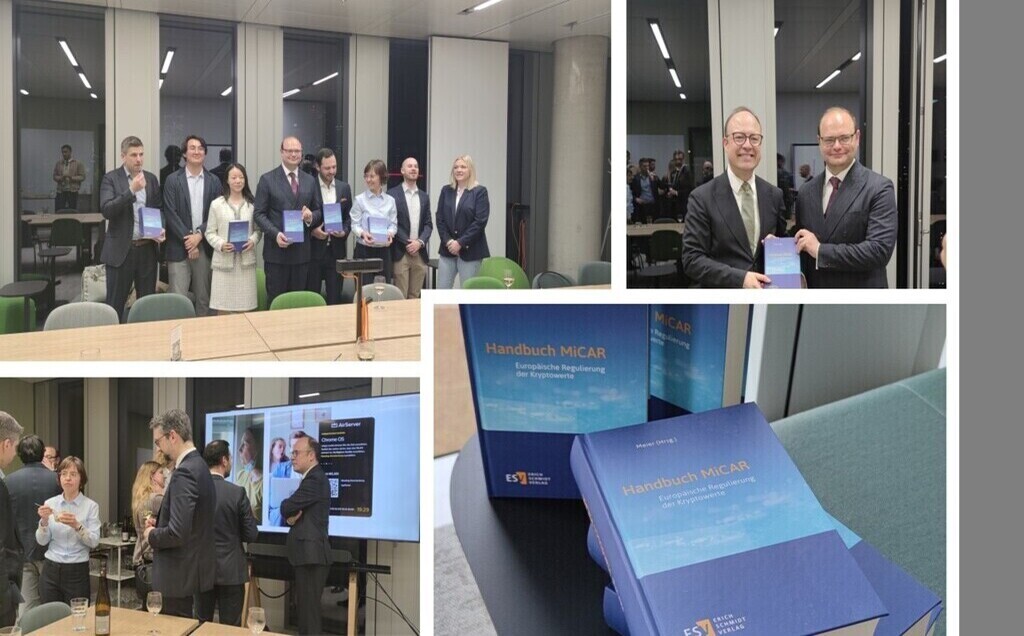Probably one of the oldest Bitcoin based business models since Bitcoin became popular is the operating of Bitcoin ATMs. ATM is the abbreviation for Automated Teller Machine while a Bitcoin ATM is a machine that changes Bitcoin into bank money and vice versa. In other European countries like Austria, Switzerland or the Netherlands Bitcoin ATMs can be operated without the need to fulfil any specific regulatory requirements. In contrast to that in Germany a prior approval from BaFin (German Federal Financial Supervisory Authority) is necessary in order to operate such machines. But what exactly is the subject of approval and what are the requirements which must be fulfilled to obtain a BaFin permission for operation of a Bitcoin ATM?
BITCOINS ARE CONSIDERED FINANCIAL INSTRUMENTS IN GERMANY
To a great extent, the financial regulations are harmonized within the European Union. In regard to Bitcoin and comparable cryptocurrencies there are some points that differ from member state to member state and that have to be kept in mind. In the Federal Banking Act (KWG) the German legislator chose to not only qualify the instruments listed in the second Markets in Financial Instruments Directive (MiFID II) but additionally units of account as financial instruments. Examples for units of account are the euro’s predecessor European Currency Unit (ECU), the special drawing rights of the International Monetary Fund or Goldfranken which were formerly used in the international post and transportation industry. BaFin also qualifies Bitcoin and comparable cryptocurrencies as units of account and accordingly as financial instruments as defined in the Federal Banking Act (KWG). Even though the qualification for Bitcoin as a unit of account has been ruled unlawful by the Berlin Court of Appeal in a criminal judgement dated 25 September 2018, BaFin holds on to the qualification and argues that a criminal judgement has no binding effect for a supervisory authority like BaFin. As long as the administrative courts that are competent for BaFin’s administrative practices do not confirm the legal opinion of the Berlin Court of Appeal, Bitcoins must be considered units of account and therefore as financial instruments in the sense of the Federal Banking Act and therefore the license requirements set out in the Federal Banking Act are applicable to all Bitcoin related businesses as well.
WHICH ACTIVITIES MUST BE PERMITTED BY BAFIN FOR THE OPERATION OF BITCOIN ATMS?
Providing a Bitcoin ATM service means that on the customers’ demand Bitcoins get transferred from a wallet owned by the operator to a wallet that is owned by the customer in exchange for a payment in fiat currency or vice versa. Simply put, a Bitcoin ATM can be seen as an automated exchange office for Bitcoins. Acquiring or selling financial instruments as a service for customers from an own stockpile in a commercial extent is considered as proprietary trading. The service provider must therefore obtain a permission from BaFin in accordance to the German Banking Act (KWG). If those financial instruments are not delivered from the operators’ stockpile but are purchased by the operator on behalf and on account of the customer before delivery to the customer, the operator is required to be licensed for financial commission business by BaFin in advance.
WHAT ARE THE REQUIREMENTS THAT NEED TO BE FULFILLED TO OBTAIN A BAFIN LICENSE?
A successful BaFin application for proprietary trading and/or financial commission business requires the applicant (the Bitcoin ATM operator) to have a starting capital of at least 730.000 euros at his disposal. Furthermore, BaFin requires the directors of the company to be fit and proper and – if possible but that is not a necessity – to have experience in the fields of proprietary trading respectively financial commission business. For a successful application a sustainable business plan with key figure estimates for the first three business years, a comprehensive description of the planed compliance processes and internal monitoring and controlling procedures as well as detailed information on the key shareholders of the operating company must be shown to BaFin.
FIN LAW supports its clients with the preparation of BaFin license applications and specializes in the legal specifics of business models that are related to cryptocurrencies.
Attorney Lutz Auffenberg, LL.M. (London)
subscribe to Newsletter






